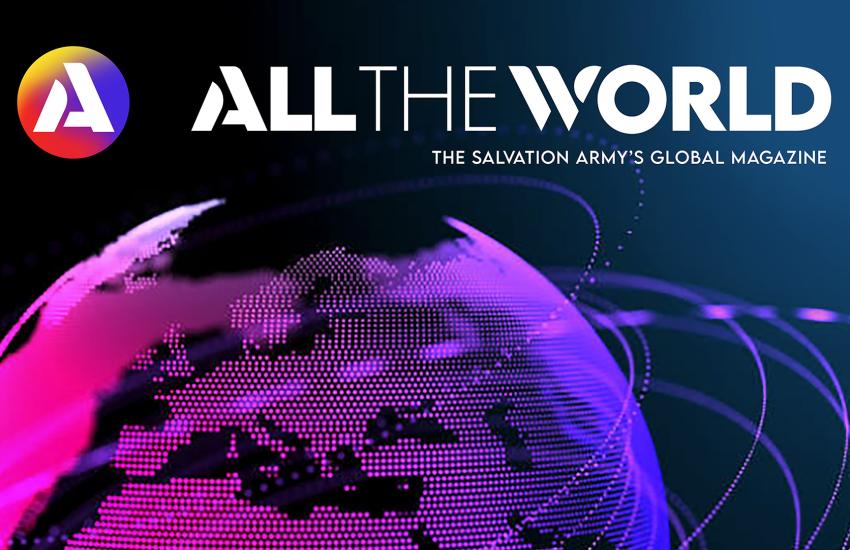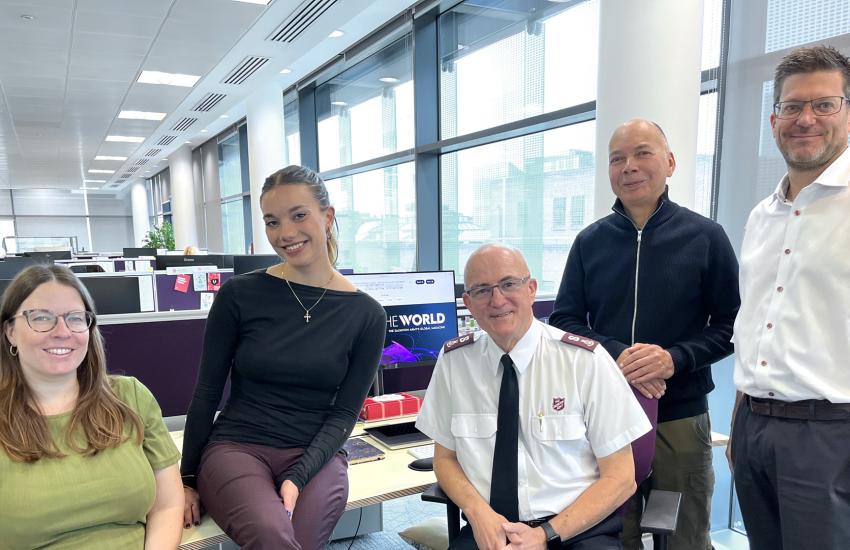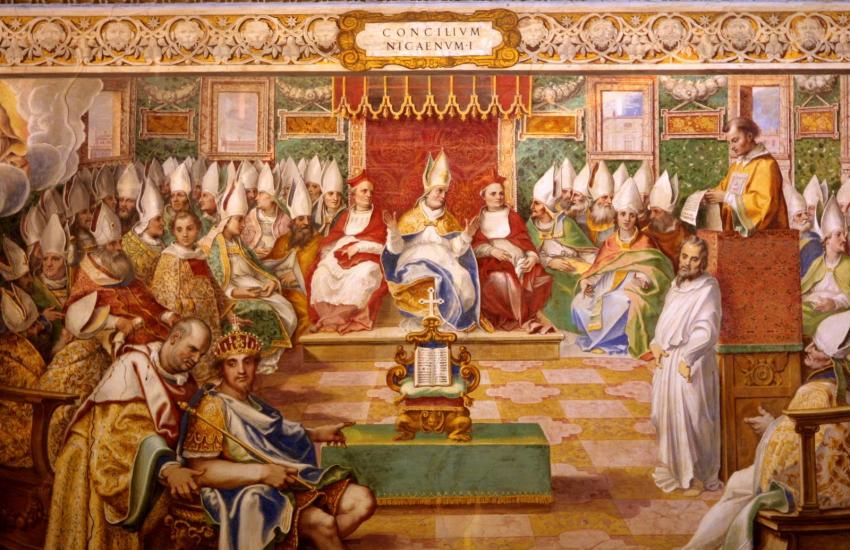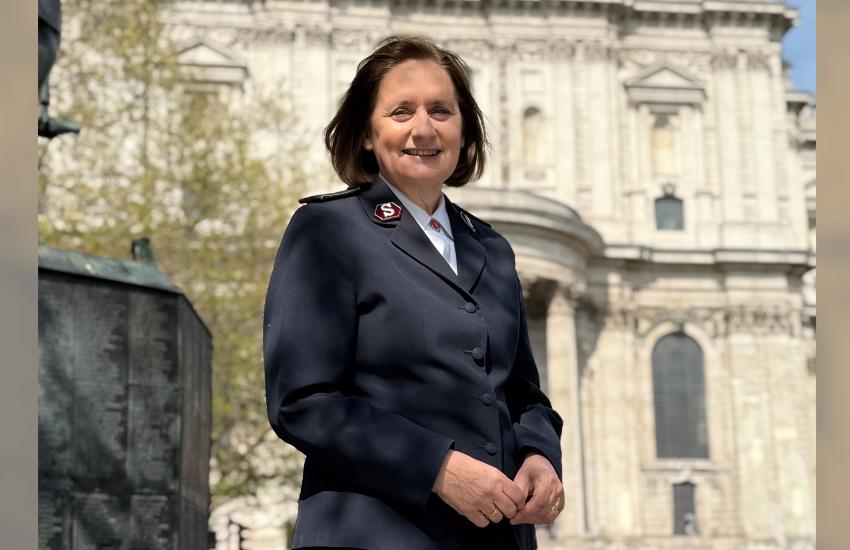It was a surprise when a seasoned Salvation Army officer said that the invitation to the Lausanne Forum 2004 in Pattaya, Thailand, had meant he was faced with a dilemma. But he explained: 'It was like being invited to a fabulous banquet with hundreds of delicious dishes on the table and then being told "Choose one – and leave the rest!"' That was probably a slight exaggeration but it does give an idea of what many of the 1,500 delegates probably felt like. But 'choose one – and be blessed by the rest' would have been nearer the truth.
The forum was convened by the Lausanne Committee for World Evangelisation under the motto 'A New Vision – A New Heart – A Renewed Call' and a glance at the programme was enough to whet the appetite of any 21st-century minister of the gospel. There were 31 interest groups headed by highly-experienced and recognised convenors. The carefully-chosen subjects spanned almost every aspect of mission in the modern world, ranging from the deeply theological to the highly practical. These included: The Uniqueness of Christ, Holistic Mission, Reaching the Youth Generation, Future Leadership, Medical Ethics, Media and Technology Understanding Muslims and Funding for Evangelism. Words like 'spoilt for choice' came quickly to mind.
Delegates could indicate a number of preferred choices but time and space allowed a place in only one group. Some groups were large enough to be divided into sub-groups. Fortunately, synergy sessions enabled groups to overlap and interact, and plenary sessions included group reports that made it possible to follow the progress and to enjoy a taste of the 'menu' of other groups.
The venue of the forum was the Royal Cliff Beach Resort, beautifully situated on the outskirts of Pattaya, Thailand. However, if any delegates arrived thinking it would be a week of relaxation rather than work, they soon learned otherwise. Breakfast was served from six am and from then onwards it was all go. The 90-minute meal breaks did allow time for a quick dip or a hurried trip to the shops but more often than not delegates used the time to mingle and enjoy fellowship – or catch up on work. The last meeting ended at 9.15 in the evening.
Prayer quickly became the natural breath of the forum. People were praying here, there and everywhere and at all hours of the day or night – praising and pleading in larger groups or smaller groups, in twos and threes, in one language or several languages, for one another and for members of 'the family' all over the world. In his introduction, Dr Roger Parrot, chair of the forum, prayed that God would stretch and challenge the thinking, learning and faith of the delegates, that he would lead them to fulfil God's desires, rather than the advocacy of individual agendas and that he would lead to action plans that would help the Church move forward in the vital and difficult areas of world evangelism. That was just one of the many prayers that were answered.
There were 31 Salvation Army delegates – officers and non-officers – actively engaged in 21 of the interest groups. The delegation, which represented 18 territories, commands and regions from around the world, was coordinated by Colonel Earl Robinson (Secretary for International External Relations). As part of the preparation for the forum, the Army sent submissions from focus groups on most of the topics that were to be dealt with by the issue groups. The full text of the submissions, together with a review article, can still be accessed on the International Headquarters web site: www.salvationarmy.org
Twenty-one hours had been allocated for the interest groups to reach conclusions, formulate recommendations and prepare a paper – or at least a draft paper. However, so intense was the work and so high the level of enthusiasm that discussions and debates, drafting and editing – sometimes in smaller groups – often continued over meal breaks and even into the late hours of the night. Not surprisingly, a number of groups were unable to finish their work in the time available so it continues after the forum via fax, letter and email.
All this work will result in a series of 'occasional papers' – known as the Lausanne Occasional Papers. These will be accessible on the internet and will be reviewed by Salvation Army focus groups.
Although nearly all the groups functioned as hoped, unofficial comments suggest that one or two struggled to establish full unity and cohesiveness. But even where results felt short of expectations, useful results were produced, friendships were made, networks extended and the foundation for future development and exchanges was strengthened.
There were many highlights and lots of fun and laughter. There were also moments of shared pain and unashamed tears, especially when stories of terrible hardship and persecution were shared.
Churches and evangelistic organisations from more than 140 countries were represented at the Forum by more than 1,500 delegates. Some sponsorship was available for those who came from poorer countries but nowhere near enough to cover all costs so many had made great sacrifices to be there. Some of the delegates had to remain anonymous to avoid the risk of reprisals and persecution when they returned home.
From a Salvation Army point of view, the benefits of the forum were many. Firstly, there was the privilege of contributing – and there is no doubt the Army's presence and input at all levels was greatly appreciated. Secondly, we delegates received a tremendous amount of encouragement, inspiration, information, fresh insights and new, innovative ideas and techniques in every aspect of present day evangelism. Thirdly, there was the strengthening of the fellowship and bonds that confirm the Army's place in the body of Christ and encourage us to bear our share of the yoke of evangelism.
Full details of the interest groups and other information about the Lausanne Committee for World Evangelisation and Forum 2004 can be accessed on the Lausanne website: http://www.lausanne.org




